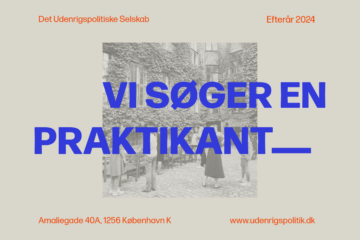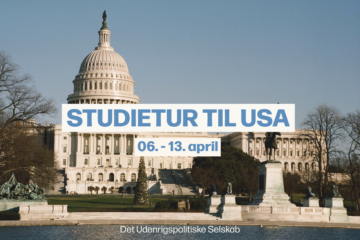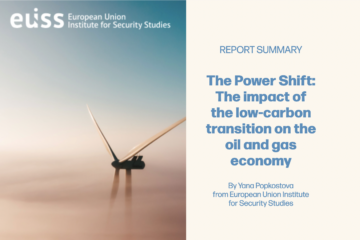Algeria, deradicalization and the stabilization of the Arab world
Intervention of His Excellency Abdelkader Messahel, Minister of Foreign Affairs of Algeria.
Speech held at the the Royal Danish Defence College 10.01.19.
“The contribution of Algeria to the stabilization of the region and in the Arab world, and the Algerian experience in deradicalization”
Excellencies, Ladies and gentlemen,
First of all, I would like to thank the Minister Anders Samuelsen for having included this debate-meeting at the Royal Danish Defence College in the program of my working visit to this beautiful country. This meeting will be devoted to a presentation of my country’s role in the affirmation of peace, stability and security in our immediate neighbourhood in North Africa and the Sahel, and on the policy of deradicalization implemented as part of its overall strategy to combat terrorism and violent extremism.
I would also like to thank the Commander-Director and all the members of the Board of Directors of this prestigious institution for their hospitality and for the opportunity given to us to share with this important audience some reflections on this theme, to which, I am convinced, you attach great importance.
Located in a pivotal geographical area between Europe, Africa and the Arab-Muslim world, and bordered by a Mediterranean Sea whose strategic importance for peace, security – but also trade and international economic cooperation – is vital, Algeria is today a secure country that lives in peace and enjoys great stability in an area marked by great turbulence due to the crises experienced by some neighbouring countries, the persistence of the terrorist threat, and the phenomenon of massive clandestine migration, which also poses serious challenges to the stability and security in the region.
This stability enjoyed by Algeria – despite the multiple security challenges that mark the region – resulted in the country being seventh in the 2016 and 2017 rankings of the world’s safest countries, as determined by the US Gallup Poll in Washington. We look forward to the 2018 edition of this report.
This result is the culmination of a long-term vision of peace, reconciliation, dialogue and development advocated by President Abdelaziz Bouteflika since his election as President in 1999, and implemented in practice thanks to policies, strategies and programs in different areas, I will address in the second part of this presentation. It is also thanks to the National Popular Army and Security Services who played a crucial role in preserving stability and security of the country.
In this first part of my remarks, I would like to highlight the fragility and volatility that distinguish certain regions of our direct geopolitical environment – particularly in Libya and the Sahel – and the efforts that my country makes to contribute to overcoming differences and restoring of peace, stability and security, as effectively as possible.
At first, I wish to emphasize that the action my country takes to this end is based on clear principles, namely the principle of non-interference in the affairs of others, equidistance to all parties, positions and interests, and ownership of crisis and conflict resolution processes without interference or foreign pressure.
This action is also based on the respect for territorial integrity of the countries concerned, for their sovereignty and their national unity, and also based on the preservation of their national cohesion. It is also always in line with the spirit and the letter of the United Nations Charter and is in strict compliance with international law and universal values that transcend conjunctures and contribute to bring individuals and people closer together and to the rapid and peaceful overcoming of differences between peoples and states.
I do not wish to go back over the contributions made by my country’s mediations to the conclusion of the Iran-Iraq border agreement in 1975, to the release of US diplomats held as hostages in Teheran in 1981, to the peace agreement signed between Ethiopia and Eritrea in 2000, which had put to an end the armed conflict and which allows today these two countries to restore their relations and to positively consider their common future, nor to the mediation in the Great Lakes crisis and the conclusion of the Ta’if Agreement that ended the civil war in Lebanon.
Today, taking these same principles as points of reference, my country invests efforts and is fully committed to peace processes in Libya, Mali and Western Sahara, and develops a multidimensional cooperation in the fight against the scourges of terrorism and violent extremism, together with its northern and southern neighbours.
In the Libyan crisis, Algeria, as a neighbouring country, fully supports the efforts and the road map of the United Nations for a political solution between all Libyan parties without interference or foreign interference, respecting sovereignty, independence, the territorial integrity, unity and national cohesion of this brother country. We maintain a position of equidistance with all parties, with whom we maintain regular contacts.
In Mali, Algeria remains fully committed to the implementation of the Algiers Peace Agreement by all signatory parties to this document, despite the proliferation of acts of violence and terrorism.
In Western Sahara, my country supports the efforts of the United Nations for the exercise by the people of this non-self-governing territory of its inalienable right to self-determination, in accordance with the relevant Security Council resolutions and international legality. It is in this spirit and on this basis that my country has participated in thecapacity of observer, just like Mauritania, the other neighbouring country, in the recent round of negotiations organized in Geneva by the Special Representative of the Secretary United Nations General for Western Sahara.
We will have the opportunity to look at these different issues more in detail later during the debate that will follow this presentation.
Excellencies, Ladies and gentlemen,
Regarding the second part of this presentation, and as you know it, Algeria lived in the nineties a national tragedy engendered by the terrorist aggression that targeted the Algerian people and its institutions.
While organizing the security response to this aggression, in order to protect the population, the institutions and the whole country against terrorist violence, my country has gradually implemented a policy of deradicalization, which has proved its worth and made it possible today to live in peace, stability and security, and to devote its resources to the sole service of socio-economic development.
This policy is based on the belief that the security option, while essential, is not sufficient on its own.
During this short intervention, I would like to give you an overview of the main principles on which this policy is based, the areas it covers, as well as the actors involved.
Ladies and gentlemen,
Among the principles, on which the policy of deradicalization in Algeria is based, the fight against the factors of marginalization and exclusion, the promotion of social justice and equal opportunity, national reconciliation, the promotion of democracy, the rule of law, good governance, human rights and fundamental freedoms, and the independence of justice, all play a central role.
The extremist discourse based on the logic of exclusivity and exclusion is defeated, devalued and emptied of its substance and its scope by the various levers that underpin the stability and durability of modern societies.
Justice and good governance strengthen citizens’ trust in their public institutions. Democracy consolidates freedom of expression. It reveals the extremist discourse and all the violence it conveys. It contributes to its marginalization and to its rejection by the population and exposes its supporters to the rigor of the law.
In truth, democracy stands out as the best antidote to violent extremism and terrorism.
The national reconciliation, advocated by the President of the Republic, Mr. Abdelaziz Bouteflika, and implemented under his leadership with the massive support of the Algerian people via referendum, sacralises the human life and places it above all other considerations. It is based on the fundamental values of tolerance, dialogue, living together in peace, mutual acceptance and respect for differences.
Social justice, on the other hand, reduces vulnerabilities and margins of exposure to arguments developed and exploited by ideologues and recruiters of extremist and terrorist groups.
In sum, the fight against violent extremism and terrorism consists in depriving proponents and promoters of terrorism and violent extremism of anchoring factors in society, and in its political and socio-economic way of functioning.
This is the path on which Algeria embarked since the accession of Mr. Abdelaziz Bouteflika to the presidency of the country in 1999. And it is thanks to this policy that the country has quickly healed the wounds of the black decade, by peaceful means and with the conviction than path of legal repression can take an issue so far and no further, and the country mobilised all the people towards the only objective that is worth the trouble i.e. the development of the country and the well-being of all its citizens, without exception or exclusion, in accordance with the Constitution and laws of the Republic.
Today, Algeria is working to promote and anchor in the minds and behaviours of the citizens and institutions the values and virtues of living together in peace. It was indeed at the initiative of my country that the United Nations General Assembly adopted, exactly one year ago, the International Day of Living Together in Peace, to be celebrated on 16 May every year.
Ladies and gentlemen,
The second part of this talk focuses on a few of the many areas covered by the deradicalization policy implemented in Algeria. In fact, in the war on terrorism and its matrix i.e. violent extremism, the Algerian authorities quickly realized that in order to be won, it required the direct involvement of all the other sectors i.e. political, socio-economic, cultural, educational, media, technological…
The question was not, who was involved in this fight, but rather who was not.
Thus, at the political level, the constitutional revision of 2016 had as main objective the crowning achievement of the numerous institutional reforms launched in previous years, as well as the consolidation of democracy through the widening of democratic spaces and the reinforcement of the foundations of the rule of law thanks to a wide range of new provisions – including the more rights for the opposition, the political parties and the civil society to participate in the management of public affairs.
At the economic level, ambitious development strategies and programs had fully integrated the need for a substantial reduction in unemployment, especially among young people, and for an increase and diversification of training opportunities, in order to provide young people with opportunities to be integrated into the economy and to shield them from the threat of the influence of terrorist groups. As a result, the unemployment rate fell from 29% in 1999 to 9% before rising to 11.1% today.
In 2008, the education sector underwent an in-depth reform of its programs with the objective of training critically-minded citizens, who are imbued with and proud of their national identity, as well as opened to universal civilization and modernity.
At the religious level, State action has focused on restoring the centrality of the national religious referent in the religious life of the Nation. It has spread in several directions, including: improvement of the training of imams, increased use of mourchidates (women imams), restoration of the mosque’s traditional role, centralization of religious discourse and fetwa and protecting them from extremist or political influences and manipulations, the ongoing creation of a Fiqh academy and of a national observatory of violent extremism, the establishment of a chair of religious orientation and imamat at the university level, large-scale dissemination through a wide range of vectors, national and international seminars, training and popularization cycles, televised debates, radio programs, various publications, and more about authentic Islam, i.e. the one carrying the values of peace, tolerance, dialogue, fraternity and sacredness of human life.
In relation to other countries, Algeria contributes to the training of imams of the Sahel countries and sends imams to preach moderate Islam to the Algerian community living in France, within the frame of a bilateral agreement with this country. Our country is willing to extend this positive experience to other countries interested in this formula.
In the field of communication, the State has made significant efforts to encourage the effective exercise of freedom of expression, guaranteed by the Constitution. The action focused on improving the training of journalists, particularly in the processing of security information, the creation of some 50 local and thematic radios, some of which are dedicated to young people, the creation of radio and of the Quran TV channel, the opening of the audio-visual sector to the national private capital, which allowed the emergence of fifty or so private TV channels. The first positive result of these initiatives is that they diverted the attention of the overwhelming majority of young Algerians from the extremist speech developed by some foreign TV stations. State action on deradicalization also covers other areas that you could consult in booklet devoted to this subject.
Ladies and gentlemen,
The third part of this introduction deals with the actors involved in the implementation of the deradicalization policy in Algeria. It is based on the combination of the efforts of the State, the civil society in its great diversity, and especially of the citizen.
By virtue of its sovereign missions, the State assumes primary responsibility for the preservation of public order and the protection of persons and their assets. The context of the fight against violent extremism requires that the state fully benefits from the confidence of the population and that the latter can enjoy its protection against the terrorist threat in its various forms.
A strong, just and capable state, deriving its legitimacy from the rule of law, remains the indispensable condition for the success of the fight against these scourges. The efforts made by my country in this direction can be found in the booklet dedicated to the presentation of the Algerian experience in the promotion of democracy and the rule of law as an antidote to violent extremism and terrorism, which you can find on the website of the Algerian Ministry of Foreign Affairs.
I would like to emphasize, however, that the role of civil society and the citizen has been – and remains – crucial in the fight against terrorism.
Ladies and gentlemen,
Finally, I will return to the following three main conclusions:
First, the fact that the policy of national reconciliation, combined with the various other measures, allowed to have a clarification, revealing that an overwhelming majority of terrorists wanted to reintegrate the society, and that there was only a tiny minority of extremists, who preferred to persist in their criminal adventures. The insignificance of the level of recidivism among those who have benefited from the provisions of national reconciliation is an index to read positively from the point of view of the policy of deradicalization led by the State.
Second, even among the minority of extremists, the call for repentance and return within the national community remained an option that many terrorist leaders and elemental members of these groups eventually chose by surrendering to the authorities, thus fleeing the stalemate of the path of terrorist violence.
Thirdly, the policy of deradicalization was certainly born in the heat of the moment with the objective of preserving the maximum of human lives, but it quickly adapted to the changing nature of the threat of extremism and terrorism. It has now taken a long-term approach by prioritizing prevention, in order to permanently protect the nation from new extremist and terrorist drifts.
I hope I have provided you with some useful insights on the Algerian experience of deradicalization and remain available to answer your questions.
In conclusion of this point on the policy of deradicalization, and as indicated earlier on, we have elaborated a booklet detailing its main axes. This document is at your disposal and you can also find on the site of our Ministry of Foreign Affairs.
I thank you for your kind attention.


